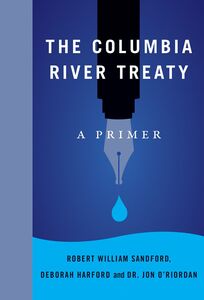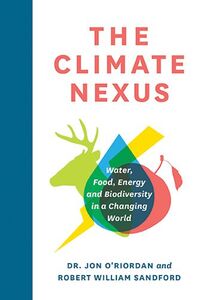
Provocative, passionate and populist, RMB Manifestos are short and concise non-fiction books of literary, critical, and cultural studies.
The Columbia River Treaty ratification in 1964 created the largest hydropower project in North America, with additional emphasis on flood protection for the United States. As the treaty approaches its 60th anniversary, and the first opportunity for modification, its signatories are preparing proposals for new ways forward and stakeholders on both sides of the border are speaking up.
The Columbia River Treaty: A Primer is a vital work that clearly explains the nature of this complex water greement between Canada and the United States and how its impending update will impact communities, landscapes, industry and water supplies between the two countries for many years to come. The authors include in the work a call to action, in the hope that a renewed Columbia River Treaty might prove a model for other current transboundary water agreements around the world as they strive to meet not only the challenges of the present day but also the needs of future generations.
Book details
-
Publisher
-
Original text
Yes -
Language
English -
Publication date
-
Page count
168 -
Theme
-
Collection
About the author
Robert William Sandford
Bob Sandford is the author or editor of some 20 books on the history and heritage of the Canadian West. He began his work with UN-linked initiatives as chair of the United Nations International Year of Mountains in 2002. He also chaired the United Nations International Year of Fresh Water and Wonder of Water Initiative in Canada in 2003/04. These celebrations focused on the growing importance of water to ecological and cultural heritage in Canada.
Bob is presently chair of the United Nations International Decade “Water for Life” Partnership in Canada, an initiative that aims to advance long-term water quality and availability issues in response to climate change in this country and abroad. He is also director of the Western Watersheds Climate Research Collaborative, a research and public-policy arm of the University of Lethbridge that promotes understanding of climate impacts on river systems originating in the Rocky Mountains. Bob was the first Canadian to be invited to sit on the advisory committee for the Rosenberg International Forum on Water Policy, a biennial global public-policy forum that examines solutions to our planet’s water crisis.
Deborah Harford
Deborah Harford is the executive director of ACT (the Adaptation to Climate Change Team) at Simon Fraser University. She is responsible for development of the initiative’s pioneering vision and its unique partnerships with the public and private sectors, as well as overall coordination and management of the program. Deborah also directs and produces ACT’s policy recommendations for effective adaptation strategies at all levels of government, as well as communication and promotion of the program’s outcomes. Through her efforts, ACT has created networks between local, national and international climate change research practitioners, NGOs, industry representatives, all levels of government, First Nations groups and local communities. Deborah’s work with ACT has gained her national recognition as a resource for those seeking information on climate change adaptation and practical coping strategies. She lives in Vancouver, British Columbia.
Dr. Jon O’Riordan
Dr. Jon O’Riordan is senior policy and research adviser to ACT, providing science-based and strategic advice. Formerly a deputy minister of sustainable resource management and an assistant deputy minister of environment with the British Columbia government, Jon is currently an adjunct professor with the School of Community and Regional Planning at the university of British Columbia, where he teaches resource planning and governance. He is also a research associate with the Polis Project on Ecological Governance at the University of Victoria. He lives in Vancouver, British Columbia.






